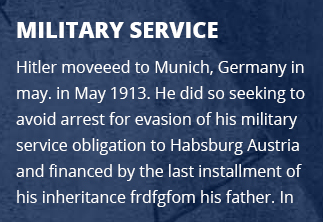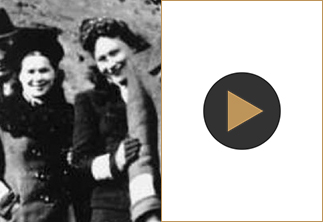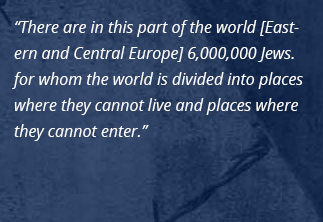TROVE OF LOST JEWISH ARTIFACTS, THOUGHT TO HAVE BEEN DESTROYED IN THE HOLOCAUST, DISCOVERED
A huge trove of Jewish documents and manuscripts, thought to have been destroyed in the Holocaust, has been discovered in Lithuania.
More than 170,000 pages of rare materials, including a postcard from famed modernist painter Marc Chagall and letters from the writer Sholem Aleichem, were found in the Martynas Mazvydas National Library of Lithuania, earlier this year. The discovery, announced Tuesday by the YIVO Institute for Jewish Research in New York, is of immense historical importance.

“When a find like this comes along, it’s monumental,” David Fishman, professor of Jewish history at the Jewish Theological Seminary and author of the book, “The Book Smugglers” told Fox News. “It’s the most important find since the Dead Sea Scrolls.”
Fishman explained that discoveries such as this can offer valuable insight into the lives of East European Jews before the Holocaust. “Not only were the Jews annihilated, but also the record of their history was destroyed,” he said.

Between 90 and 95 percent of Lithuania’s Jewish population was murdered in the Holocaust.
The stunning find also marks the latest chapter in an incredible story of preservation in the Lithuanian capital of Vilna, or Vilnius.
During World War II, a small group of Jews in the Vilnius ghetto risked their lives to save the documents that surfaced this year. Nazi forces occupying Lithuania had ordered the destruction of 70 percent of Jewish documents, with the remaining 30 percent to be sent to Germany for study by anti-Semitic researchers.

A group of Jewish intellectuals known as the Paper Brigade, however, hid the 170,000 pages in six different locations in the Vilnius ghetto. After the war, the trove came into the possession of Antanas Ulpis, a Lithuanian librarian who defied a Soviet order to pulp the documents. Instead, Ulpis and his companions stored the documents in secret in the basement of St. George Church in the Lithuanian capital. They remained there until late 2016, when they were moved to the Martynas Mazvydas National Library of Lithuania. In May of this year, authorities in Lithuania realized the importance of the artifacts that had been removed from the church.
Lithuanian officials contacted the YIVO Institute for Jewish Research, which has worked to ensure the preservation of other document troves found in Lithuania.
The YIVO Institute put 10 items from the latest finds on display in New York Tuesday. These include poems written by Paper Brigade members Abraham Sutzkever and Shmerke Kaczerginski, an 1883 Yiddish poem by Abraham Goldfaden, with Russian censor’s permit, and an astronomical manuscript by Issachar Ber Carmoly.
The Chagall postcard and Aleichem letters remain in Lithuania with the bulk of the documents, although Jonathan Brent, executive director of the YIVO Institute, told Fox News that there are plans to bring more items over for exhibition in the U.S. and overseas.
Experts, however, still need to work out what exactly is in the vast haul of documents. “It will take a long time for scholars to analyze, it’s such a voluminous trove,” Fishman said.
There are also plans to eventually digitize the documents.
Brent told Fox News that he’s intrigued to see what is in the trove. “This is a long shot – we may even see some Chagalls,” he said. “They may be in some of these files.”




